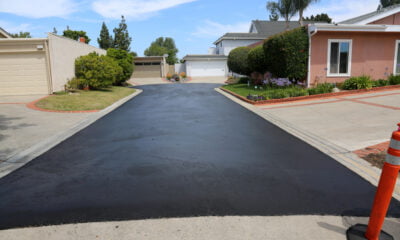

Features
Sustainability: will we wait until the tipping point?
For sustainability to work, it must be practiced beyond industry and corporates and be made truly accessible to everyone, writes global sustainability ambassador Emine Mehmet.
Last year, I travelled to the UK and South Africa to promote The Big Shift Sustainable Design Competition. On this trip, I met with exhibitors, design industry associations and sponsors to lay foundations for the competition. Along the way, I developed new understandings of the world, people and sustainability.
I found that fundamentally, we are all the same. We all want the same things; to feel secure, to have a home, food, an education, to have opportunities and a future. We are all patriots and love our country. We look to our government for leadership, courage and vision and to create and influence positive change for generations to come, not just for their time in office.
I believe that it is within our power as people to develop sustainability internationally. This is the vision I have for my work; to promote the use of sustainably made materials, sustainable ideas and ways of living by making it more accessible, more desirable and better understood.
I met a young woman from Zimbabwe who moved to South Africa to find work and support her family. She supported them not by sending money, but by sending food. Scarcity of food is not something we see much of in Australia – it’s a far away concept.
But the sustainability of food supplies is a very real worldwide concern not discussed often enough. Food shortages in Zimbabwe and other parts of the world are very real and are happening now.
To have a future anywhere in the world, we need to embrace sustainability and stop navel gazing at only our personal realities. In Australia, we act like we invented sustainability and it would seem we’re leading the world.
But in other parts of the world, it is ingrained in their way of life. Europe in particular does it well, where light timers and sensors and water control in public spaces is the norm; the brown paper bags and ‘bring your own shopping bag’ concept is widespread.
It is easy to be drawn into ‘the lucky country – young and resource rich’ state of mind – consideration of the future wasn’t always our first priority. Lack of public ownership of sustainable issues and reliance on our government to fix things are a clear demonstration of how disjointed the Australian public are from the issue of sustainability.
Likewise, in the UK the sustainable movement is strong, but there is still a disjoint between the practice of sustainability by industry and by the public. The message is not filtering down to the general population.
This is a problem I have observed worldwide: the experts get it, but the population doesn’t have enough access to easy information on readily available and desirable resources – like furniture, homewares, everyday household items, food and general goods, building materials, alternative energy – to attempt to live more sustainably.
Beyond governments and advocates, designers have the power to influence consumer behaviour. Sustainability won’t work unless it is practiced by everyone, not just corporates and industry. We need to talk about it on a level everyone can understand. Sustainability isn’t hard to interact with, and maintaining the environment should be desirable, even sexy.
Aspects like sustainable furniture and homewares can be incredibly beautiful. If they were given more airtime, this would be a reality for everyone.
It should be easy too! Imagine not having to think about whether something is sustainable or not. Imagine all things from a toothbrush to your lounge had to come with information about its sustainability. Where it came from, how it was made, what it was made of, who made it and what to do with it when its life is over. Wouldn’t that make things so much easier?
In South Africa, they are crying out for a sustainable solution to their electricity supply problems, something we are lucky enough not to have experienced in Australia. Many South Africans want to be sustainable, to use organic food and low toxic products, but these have been priced out of reach of most of the population.
It’s fair to say that governments are not always solution providers. They are often cash poor and hindered by laws and policies. I believe governments need to engage more heavily with large corporations and industry to make sustainable solutions accessible and affordable. The people need to take more responsibility and action when it comes to creating a sustainable future. Sustainability is about community and collaboration, this means we all share and contribute.
Emine Mehmet is a global sustainability ambassador, an ambassador of The Foundation for National Parks & Wildlife and a fellow of the Design Institute of Australia. For more information, see her website.
Further reading:
UN Global Compact unveils principles for sustainable food
Food waste used to boost Commonwealth Games sustainability credentials
Poll: UK homeowners want sustainable energy upgrades for ‘mouldy, cold and damp’ homes
63% of UK investors want to be offered sustainable investment options































